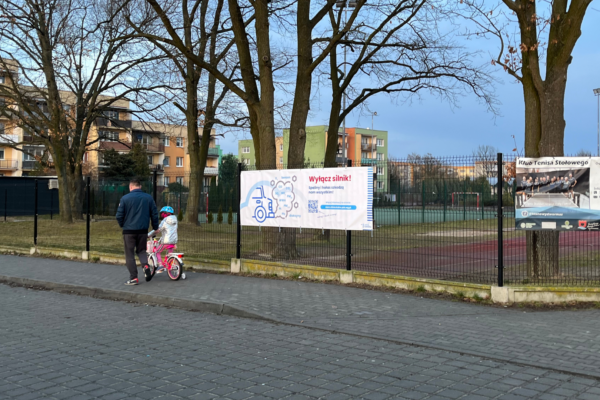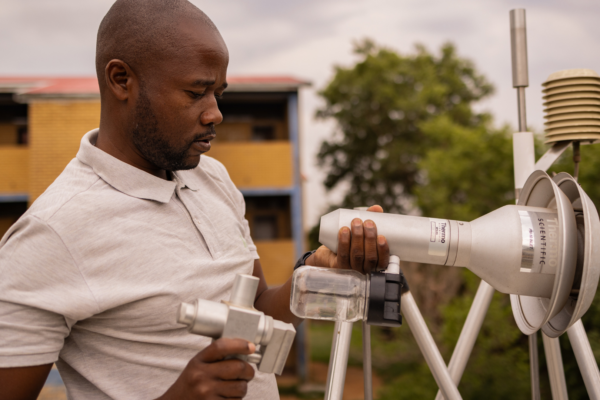Check out the latest news articles, research and progress to tackle air pollution around the world.
Air pollution identified as a top global risk
The World Economic Forum released its Global Risk report, with a chapter on pollution, including air pollution, for the first time. This highlights a growing global recognition for the importance of this issue. The report is based on insights from over 900 experts worldwide.
South Korea’s clean air progress
South Korea has significantly improved its air quality, dropping from 60 to just 10 poor air days per year and reporting 38% less particulate matter (PM2.5) pollution since 2015.
Push to improve access to open air quality data
Open air quality data is a global health imperative, explains OpenAQ’s Executive Director Chris Hagerbaumer. She argues access to data is fundamental to generate an understanding of the problem and inspire corrective action.
This is exemplified by new research from Sydney’s University of New South Wales, which uncovered dangerous levels of air pollution in and around urban areas in Fiji and the Solomon Islands. Experts are calling for urgent government action to further monitor and mitigate this pollution and the significant health risk it poses to residents.
Learn more about OpenAQ and other organisations working to make air quality data accessible worldwide.
Businesses incorporate air pollution into ESG commitments
Inter IKEA Group published its 2024 climate report, which includes a comprehensive picture of the company’s air pollution footprint and plans to mitigate more than 50% of all pollutant emissions by 2030.
One of India’s largest renewable energy companies ReNew is advancing clean energy solutions while tackling air pollution through sustainable practices and innovation. Co-founder Vaishali Nigam Sinha highlights why businesses need to be at the heart of a pollution-conscious green transition.
Exponential Roadmap supports companies wanting to align with the 1.5°C climate ambition. Their newly updated guidance now includes tips to start or bolster existing air emissions reporting.
Turning the heat up (or down) on super pollutants
Carbon Brief’s helpful explainer shows how super pollutants harm human health and worsen climate change.
the shipping sector switches to cleaner ‘polar fuels’, black carbon emissions in the Arctic region could be cut by over 50%. This would have a drastic impact on climate warming, which is happening four times faster in the Arctic than the rest of the globe.
Tropospheric ozone is a potent greenhouse gas and dangerous pollutant that is often overlooked by policymakers. Open Access Government highlights the urgent need for policy action to combat tropospheric ozone to protect human and planetary health, and global food security.
The European Council reveals that 56.7% of tropospheric ozone-attributed deaths in Europe are due to the pollutant being transported from outside the EU. Researchers are calling for global and pan-European action to tackle this boundaryless health crisis.
Research links air pollution to lung cancer, skin conditions and poor mental ability
The effects of air pollution on human health and function continue to make headlines. Even brief exposure impedes our ability to concentrate and recognise emotion in others. More than 1,100 people a year in the UK are reported to develop the most prevalent form of lung cancer due to air pollution. Smoke from wildfires and exhaust fumes in the US are found to be triggering spikes in eczema and other skin conditions.
Health community calls for urgent action ahead of WHO conference
The World Health Organization (WHO) is leading a global call to action for world leaders and decision makers to combat air pollution to prevent diseases and save lives. WHO invites the global health community to sign their support for the initiative ahead of the Second Global Conference on Air Pollution and Health in Cartagena next month.
Toolkit for healthcare professionals
The UK’s Royal College of Paediatrics and Child Health has helpfully updated its Air Pollution Companion toolkit with more excellent resources to help healthcare professionals better understand air pollution and better integrate it into clinical practice.
Air quality sensor loan library pioneered in Ghana
In a positive step for air quality monitoring in Ghana, Afri-SET is establishing the country’s first air quality sensor loan library. Individuals and groups will be able to borrow and install sensors from the hub to assess local air quality and inform decision making.


